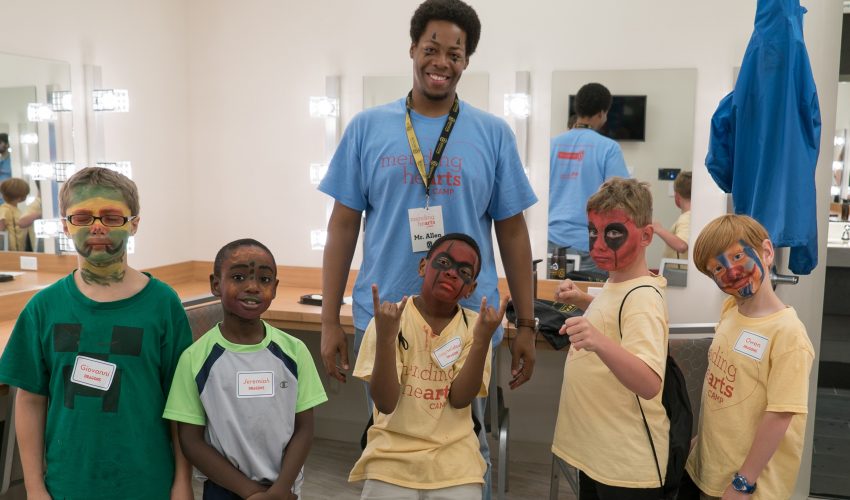On a sunny summer day, Brett Batterson was playing on a neighbor’s stoop when a black car pulled up to his house. As he arrived home to investigate, two men stepped out of the car. They explained to Brett, his mother and his two brothers that his father, Bruce, had died of a heart attack earlier that day.
Brett was seven; his father was 30.
Support poured in all the usual ways: Casseroles and concerned neighbors appeared, and people offered platitudes about life. But even the most earnest sentiments often were ill-informed.
“I remember one well-meaning adult saying, ‘You’re the man of the house now,’” he says, sitting comfortably in his office at the Halloran Centre for Performing Arts & Education in Memphis where he took over as Orpheum Theatre president and CEO last year.
“I just remember thinking, ‘I don’t want that job!’ I was just a kid.”
“But the average person doesn’t know how it feels to experience loss like that, or what to say when a child does.”
“That’s why it’s so crucial to have people who understand.”


For 43 kids in Memphis this summer, that support came from Mending Hearts Camp, a program created by Batterson where kids ages 6-13 act, sing, dance and express themselves, all while surrounded by peers who’ve also experienced loss.
Professional counselors from Baptist Memorial Hospital’s Kemmons Wilson Family Center for Good Grief work with campers, and community leaders who experienced the death of a parent at a young age come in and tell their stories.
The camp is similar to one Batterson started at a Chicago theater years ago. Because his father was an artist and puppeteer, Batterson learned to love theater early.
The arts helped him work through his own grief and gave him three things he needed to survive:
- A supportive group of friends
- A way to express loss openly, and
- The self confidence to be successful.


Opening up to healing
Walking through the Memphis camp, you might never know these kids are hurting. As the “Unicorns” (girl campers) and “Dragons” (boys) make their way from theater to dance to music, they jump, sing, smile and twirl.
But in the moments in between, when a camper withdraws and doesn’t want to participate, the staff gently springs into action.
“Demario, are you sure you don’t want to play the fortune cookie game with us?” asks counselor Kevin Cochran. Demario shakes his head and remains outside the circle of campers on the floor. After a few more tries to get him to join the circle, Cochran takes a different approach.
“Do you want to take a walk?” Cochran asks. Demario nods, his shoulders relax, and a small smile comes over his face.
They hold hands as they walk down the hallway, and the real work begins.
The National Alliance for Grieving Children found that more than 5 percent of young Americans will lose a parent or sibling before age 20. In urban areas like Memphis and Chicago, the loss is often due to murder, suicide or an accident, so broaching the subject takes all kinds of approaches.
Children talk in their own time, and you never know what might trigger the release that allows them to take the first step toward healing.
“We had a camper in Chicago whose father died in an altercation with police,” says Batterson, “so he had a negative attitude about law enforcement. One of our speakers was an FBI agent, and after his talk, the camper told the agent how his father passed, and they talked. The half hour that child spoke directly with the agent helped. It’s an opportunity he never would have had otherwise.”


The biggest joy for Batterson over the years has been seeing Chicago campers grow up and start careers, and he looks forward to doing that in Memphis.
One young man who was in the first camp became a counselor for five years. Now he does college bus tours, bringing African-American youth to historically black Southern colleges. He says the positivity of camp made him think this kind of effort was important and created a ripple effect of good.
“The kids who come to camp are shy and introverted, so it’s amazing to see the ones who won’t talk on the first day get onstage and perform on the last,” says Batterson.
“When you lose a parent at a young age, you learn before most people how fragile life is.”
“I learned at 7 years old that my father could go out the door and never come back again. It’s amazing how the performing arts can teach kids how to walk through that fear, and that’s what we’re helping them do.”



